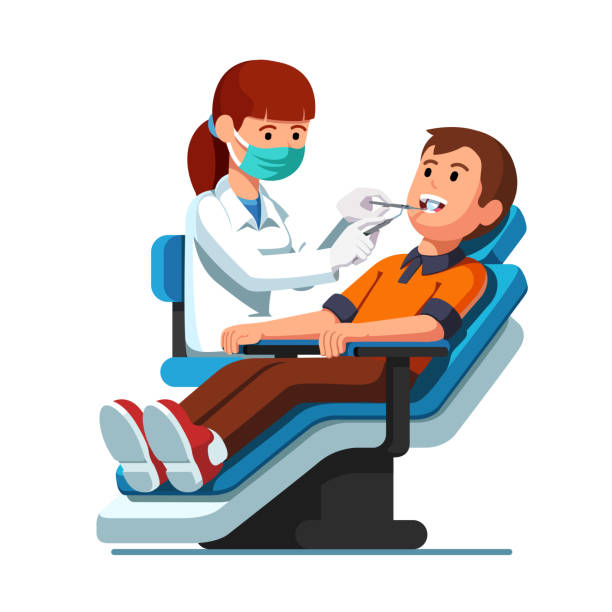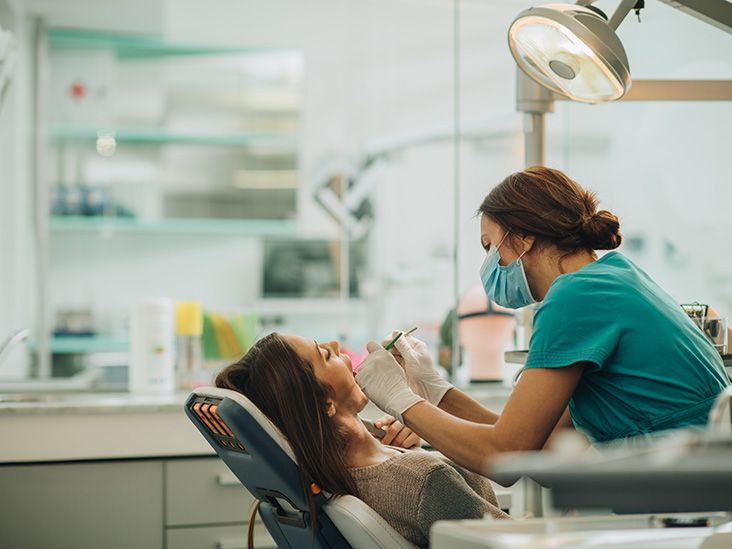Essential Dental Care Procedures for Keeping Healthy And Balanced Teeth and Gums
Maintaining optimum dental wellness is critical for total wellness, and comprehending important oral treatment procedures is the very first step toward accomplishing this goal. Regular dental examinations and expert cleansings play a pivotal role in the very early detection of potential problems, while daily techniques such as brushing and flossing are essential for combating plaque and food bits. Furthermore, dietary selections dramatically affect the health of teeth and gum tissues. As we explore these procedures and their ramifications, it comes to be noticeable that ignoring any kind of element might lead to unanticipated issues. What various other variables should be thought about for thorough oral care?
Routine Oral Examinations
Normal dental check-ups are crucial for keeping optimal dental health and wellness and preventing potential issues. These visits typically happen every six months and serve several functions, consisting of the early detection of oral problems such as dental caries, gum disease, and oral cancer cells. By identifying these problems at their beginning, individuals can gain from much less intrusive treatments and improved results.

Furthermore, regular check-ups supply a possibility for dental specialists to offer customized suggestions on dental health techniques, dietary selections, and way of life alterations that can enhance overall dental health and wellness. Developing a routine of normal exams cultivates an aggressive technique to oral treatment, equipping patients to organize their dental health and inevitably leading to a brighter, healthier smile. Ignoring these important check outs can lead to a lot more serious issues, emphasizing their value in preventive oral treatment.

Expert Cleanings
A key part of keeping oral wellness is the professional cleansing executed by an oral hygienist. These cleanings, normally recommended every six months, are crucial for the avoidance of oral problems such as dental caries and periodontal disease. Same Day Dental Crown. During an expert cleaning, the hygienist uses specialized devices to eliminate plaque and tartar accumulation from the teeth and along the gum line, areas that routine brushing might miss
The procedure begins with an extensive evaluation of the mouth. Following this, the hygienist utilizes a scaler to carefully scrape away solidified plaque. This is frequently followed by a polishing therapy with a sandy toothpaste, which assists to remove surface stains and smooth the enamel. The hygienist may use a fluoride treatment to reinforce the teeth and offer extra protection versus degeneration.
Expert cleansings not just enhance the aesthetics of your smile however likewise substantially add to total dental health and wellness. They permit for early detection of potential issues, allowing timely treatment. By prioritizing these cleansings, people can ensure that their dental hygiene regimen is enhanced by specialist care, inevitably resulting in healthier teeth and gum tissues.
Daily Cleaning Methods
Effective daily brushing techniques are crucial for preserving ideal oral health and wellness. Combing your teeth a minimum of two times a day, ideally in the morning and prior to bedtime, is vital for removing plaque and stopping cavities. Select a soft-bristled tooth brush that fits conveniently in your hand and enables very easy accessibility to all locations of your mouth.
When brushing, hold the toothbrush at a 45-degree angle to your gums. This setting helps to clean up not just the teeth yet additionally the gumline, where plaque can collect. Use mild, round activities rather than hostile back-and-forth strokes, which can hurt the gum tissues and enamel. See to it to comb for a minimum of 2 mins, investing equivalent time on each quadrant of your mouth.
Do not neglect to comb the internal surfaces of your teeth, as well as your tongue, to remove microorganisms and freshen your breath. Establishing a constant cleaning regimen will dramatically contribute to the long-term health of your teeth and gums.
Reliable Flossing Techniques
Flossing is an important element of a detailed oral hygiene routine, playing a crucial function in eliminating food particles and plaque from areas that a toothbrush can not reach. Efficient flossing methods can dramatically enhance the health and wellness of your gum tissues and teeth, avoiding dental caries and periodontal disease.
To start, use approximately 18 inches of floss, winding the ends around your center fingers, permitting much better control. Hold the floss securely between your thumbs and forefinger, gently guiding it between your teeth with a sawing activity. Prevent snapping the floss, as Visit This Link this can cause gum tissue damage.
As soon as the floss gets to the periodontal line, contour it into a C shape versus one tooth and slide it beneath the periodontal line gently, making sure to clean both sides of the tooth. Repeat this procedure for every tooth, making use of a tidy section of floss as you relocate from one tooth to the next.
It is advisable to floss a minimum of daily, ideally before cleaning, to make the most of plaque removal. Including reliable flossing strategies into your oral health routine will add to total oral health, making it an essential practice for maintaining healthy teeth and periodontals.
Nutritional Factors To Consider for Oral Health
Countless researches show that dietary factors to consider play a pivotal function in preserving dental health and stopping oral problems. A well-balanced diet regimen abundant in essential nutrients is fundamental for the development and upkeep of healthy teeth and gum tissues. Trick nutrients, such as phosphorus, vitamin, and calcium D, add significantly to the toughness of tooth enamel and the total integrity of the mouth.
Foods high in anti-oxidants, like fruits and veggies, enhance gum wellness by minimizing swelling and combating oxidative stress. Moreover, sufficient hydration is critical; water not only aids in the manufacturing of saliva, which counteracts acids and removes food bits, but also help in preserving a well balanced oral microbiome.
On the other hand, too much usage of acidic and sugary foods can bring about dental caries and erosion. Restricting these foods, together with practicing great oral hygiene, is important for oral wellness. Additionally, incorporating foods high in fiber can boost saliva production, which is useful for dental health. Hence, a holistic method that includes conscious nutritional selections can dramatically add to the avoidance of oral troubles and the promo of overall dental well-being.
Final Thought

These consultations generally take place every six months and offer multiple objectives, including the early discovery of oral troubles such as dental caries, periodontal condition, and dental cancer.Throughout an exam, an oral check these guys out specialist conducts a comprehensive evaluation of the teeth, periodontals, and bordering oral frameworks.Furthermore, routine exams supply a possibility for dental professionals to use tailored advice on dental health methods, dietary selections, and way of living alterations that can enhance total oral health and wellness.In summary, keeping healthy and balanced teeth and periodontals requires adherence to important dental treatment procedures. Routine oral check-ups redirected here and professional cleanings help with very early discovery of dental issues and the removal of plaque and tartar, specifically.